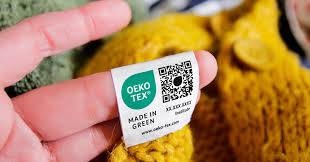OEKO-TEX Made In Green label marks 10 years of boosting transparency in global textile supply chains

Launched in 2015 as a response to the Rana Plaza disaster in Bangladesh, the OEKO-TEX Made In Green label celebrates a decade of promoting verified product safety, environmental responsibility, and fair working conditions. Developed to meet growing consumer and regulatory demands for transparency, the label integrates OEKO-TEX certifications including Standard 100, Organic Cotton, Leather Standard, and Eco Passport into a single, traceable mark.
A key requirement for the label is OEKO-TEX STeP certification for making-up and wet spinning facilities, ensuring compliance with core International Labour Organization (ILO) standards. These cover crucial aspects like occupational safety, non-discrimination, and prohibition of child or forced labor. In 2024 alone, nearly two million textile workers benefited from improved working conditions through the Made In Green initiative.
Chemical safety remains a central focus, with manufacturers undergoing rigorous audits and annual wastewater inspections. The initiative's credibility has led to its recognition by independent bodies such as the US EPA, Amazon’s Climate Pledge Friendly program, and France’s Refashion Bonus. With over 43,000 labels issued to 9,200 manufacturers in 88 countries, adoption surged 52 per cent in the past year. Germany and Asian production hubs lead uptake, as the label gains ground in the US and UK markets.
